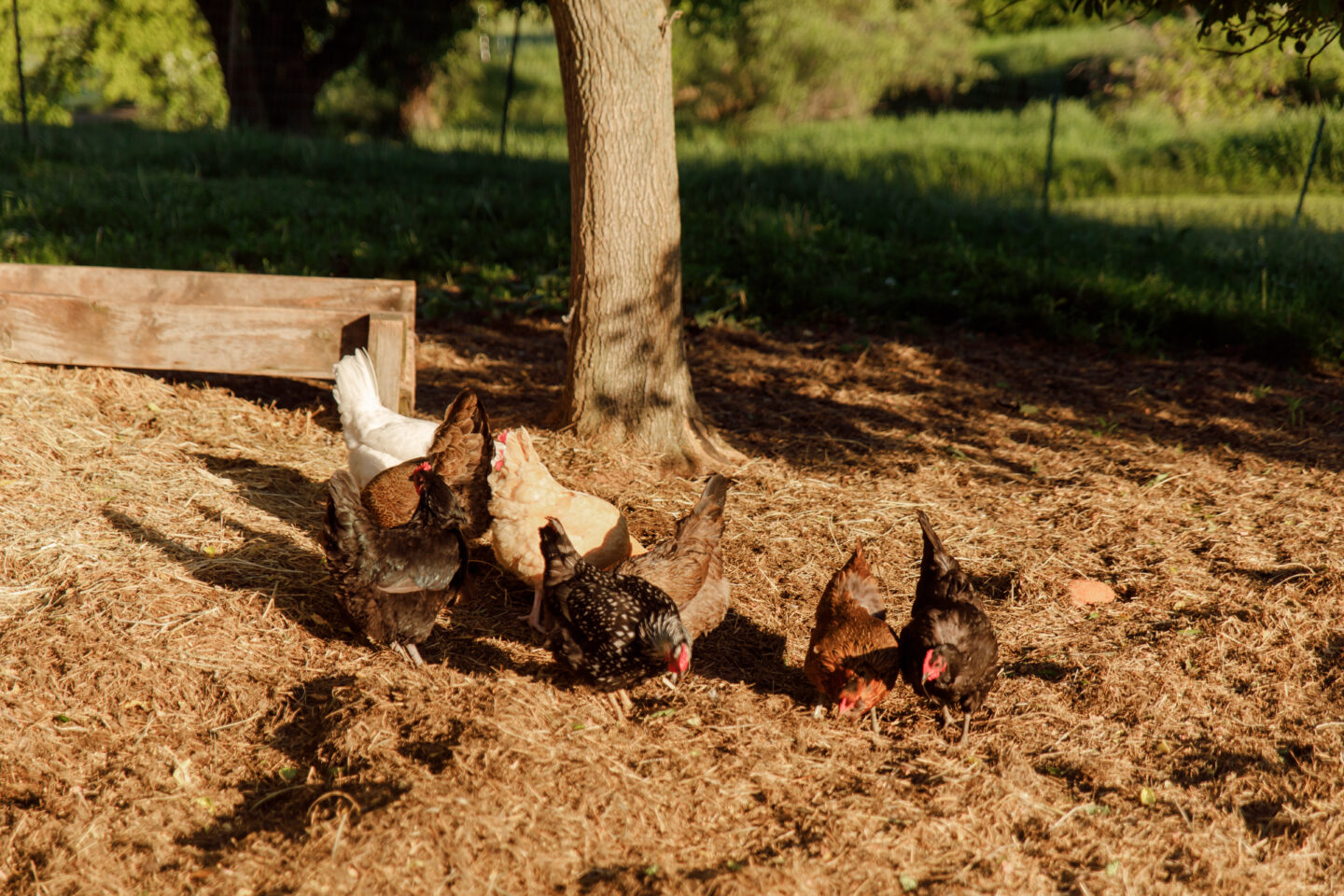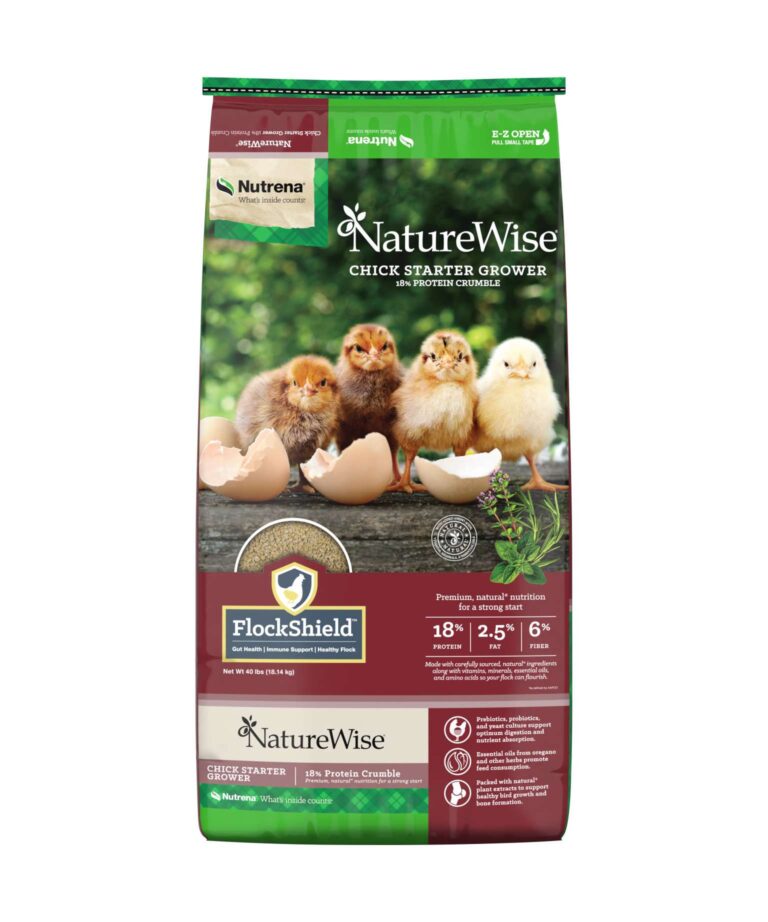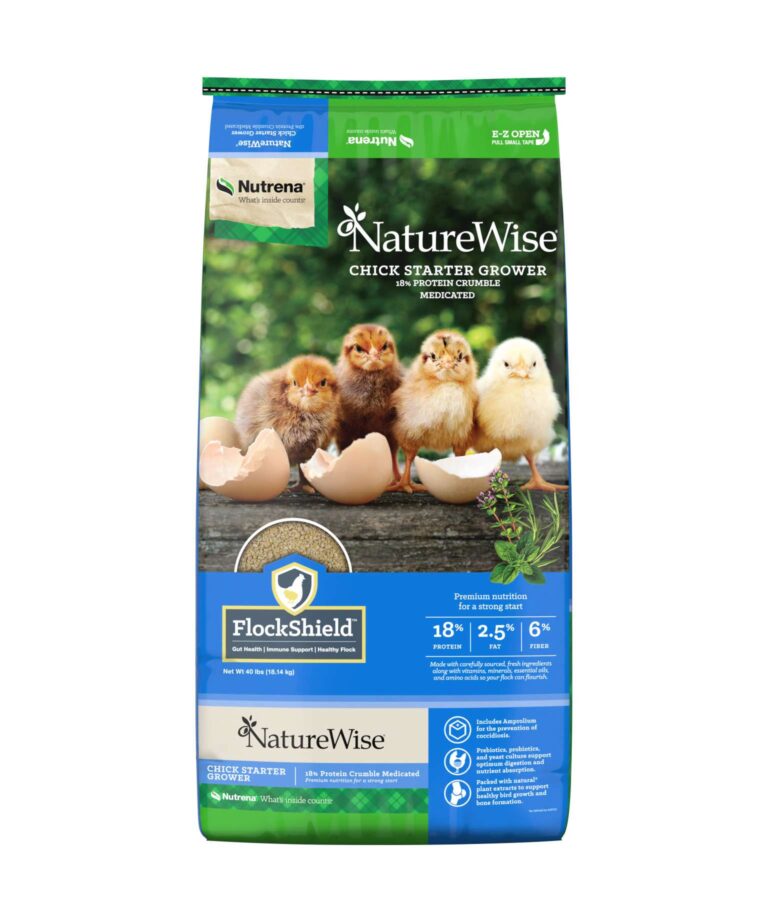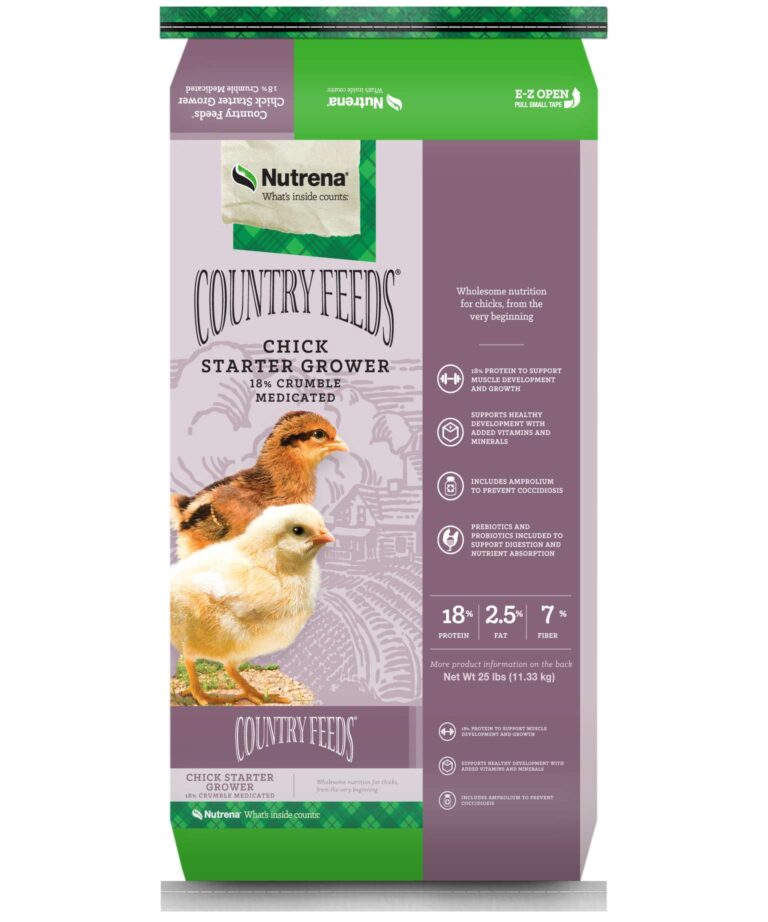Myth-Busting Medicated Chicken Feed: Feeds That Include Amprolium

At Nutrena®, and other poultry feed companies, feed is often formulated as medicated or non-medicated. There are a lot of misconceptions when it comes to the medicated feed option. So, we’ve decided it’s time to bust the myths about medicated poultry feed.
To level set, when we refer to medicated poultry feed, we’re talking about feed which includes amprolium.
Table of Contents
Key Takeaways
- Medicated chicken feed contains amprolium, which only prevents coccidiosis, not other illnesses.
- Many misconceptions exist about medicated chicken feed, including its effectiveness and safety for meat and eggs.
- It’s a personal choice whether to feed medicated or non-medicated feed, based on flock needs and conditions.
- Mixing medicated and non-medicated feeds reduces the effectiveness of the medicated option. Experts recommend a 16-week duration for medicated feed.
- No veterinary prescription is needed for medicated chicken feed, as amprolium is not classified as an antibiotic.
Medicated and Non-Medication Chick Starter Options from Nutrena
We currently offer a medicated and non-medicated chick starter grower in our Country Feeds® and NatureWise® lines, to make sure you have the choice that works best for your flock.
Read our myth-busting facts below and to learn more about coccidiosis.
Commons Misconceptions about Medicated Chick Starter Feed
Myth #1: Medicated feed will cure a bird with a cold or runny droppings.
The fact: The medication, Amprolium, will only help prevent coccidiosis, nothing else.
Myth #2: I do not want to feed an antibiotic to my chicks, so I do not feed medicated feed.
The fact: Contrary to popular belief, Amprolium is not an antibiotic. It is a thiamin blocker, and the cocidia parasite needs thiamin to multiply in the gut of a bird.
Myth #3: I do not want residual drugs in my meat or eggs.
The fact: There is no egg or meat withdrawal time for Amprolium in poultry feed. The FDA has deemed it safe to eat the eggs or meat from birds that have consumed it.
Myth #4: If I see an outbreak of coccidiosis (bloody droppings), I should start to feed the medicated feed immediately.
The fact: The dosage of Amprolium in medicated feed is not strong enough to fix an outbreak. Its purpose is to serve as a preventative measure. A stronger dose of Amprolium should be added to the water immediately if there is an outbreak, but a consult with your veterinarian may be necessary to fully address what’s going on.
Myth #5: I should always feed medicated feed
The fact: It is a personal choice, and coccidiosis can be managed with or without Amprolium. If there are wild birds present in the store where your chickens were bought, or on your farm, it may be a good idea to introduce medicated feed. But the decision is yours.
Myth #6: It’s a good practice to feed some medicated feed and some non-medicated feed as a mixture if I don’t want to give my flock too much medicine.
The fact: Feeding a medicated feed takes the guess work out of dosing, since it is formulated carefully. Mixing medicated and non-medicated feed reduces the effectiveness of the medicated feed. If you opt to use a medicated feed, a sixteen-week duration is what most experts recommend. If you have not started your chicks on medicated, it is OK to switch, but it may not be as effective.
Myth# 7: I should obtain a prescription from my veterinarian for medicated chick starter since there is new veterinary feed directive (VFD) starting soon.
The fact: Since Amprolium is not an antibiotic, no veterinary prescription is necessary. But, as with any medication, read and follow all label instructions for maximum efficacy and safety.



